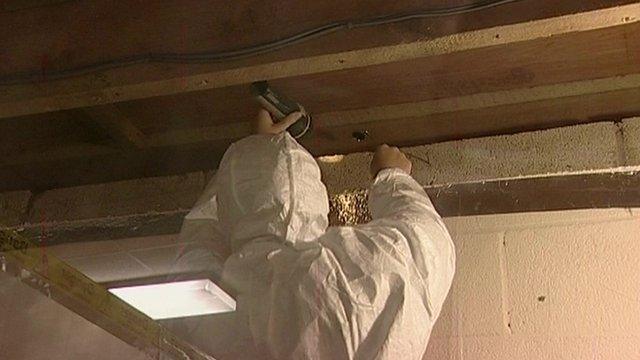Asbestos in schools: Is it a danger?
- Published
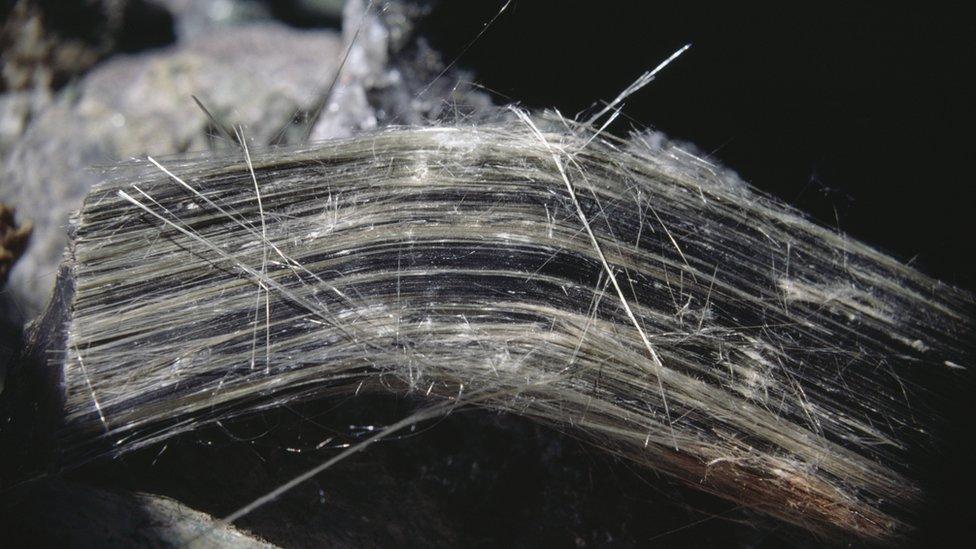
When asbestos fibres are inhaled they can cause serious diseases
How would you know if there is asbestos in your child's school? And is it a danger? A teaching union has raised concerns about a potential "ticking timebomb" in school buildings. So what is being done to protect teachers and pupils?
The dangers of asbestos, external are well documented. The material was banned in 1999 but it was regularly used in construction until this date, including for some schools built between the 1950s and 1980s.
More than 200 teachers have died across the country since 2001 from mesothelioma, a form of cancer associated with asbestos, according to the National Education Union, external, (NEU - formerly the National Union of Teachers).
Mesothelioma is caused by exposure to asbestos fibres and the disease typically develops more than 20 years later.
Children who are exposed to asbestos are five times more likely to contract the disease than adults aged 30, government research has found.
The Health and Safety Executive (HSE) said that, properly managed, it presents a "very low risk" to people in school buildings.
Research by the BBC has found that just over half of schools in the North West are known to contain asbestos, but local authorities do not know if 44% of schools have the material or not.
This is because many schools (61%) are outside LEA control including academies and free schools.
Peter Middleman is a representative of the NEU in the North West.
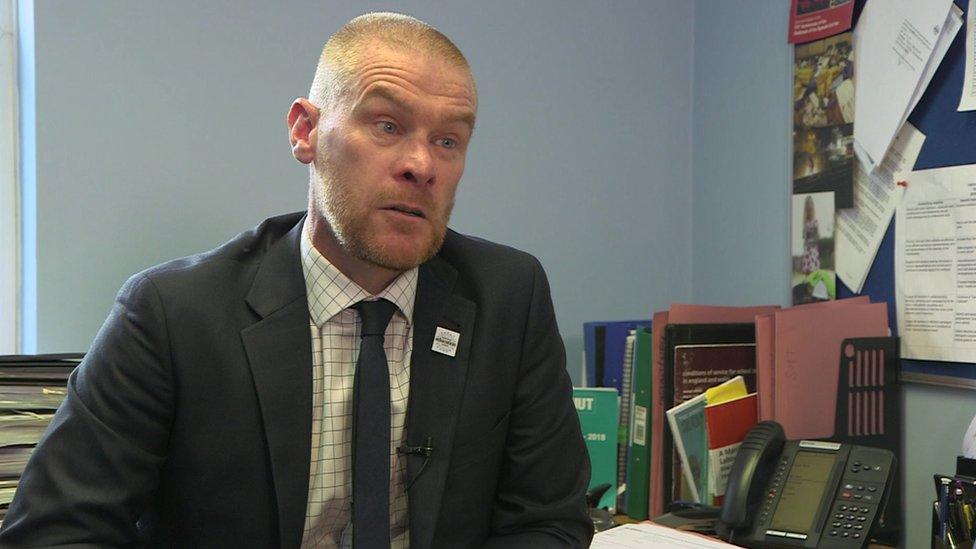
The National Education Union said asbestos should be removed "as a priority"
"If you start from a position that asbestos causes cancer in children, or children who are exposed to asbestos go on to get cancer in later life, then your starting position needs to be that it's removed as a priority," he said.
"They're paying £7bn to renovate the House of Commons, another £150m to renovate the Royal Palaces. It would take £13bn to get schools up to a satisfactory standard without removing asbestos.
It'll cost more to do it properly but we think it's worth paying. The powers that be have an obligation to ensure this isn't a ticking timebomb."
A survey by the teachers' union in March 2017, external found that 46% of teachers had been told that their school contained asbestos but about half of those said they had not been told where it was located.
Mr Middleman said he acknowledged that schools are under financial pressure but said "knowledge is power".
"If we know where the incidents are likely to take place, we know where the asbestos is, then we can manage that," he said.

Michele Reed's daughter said her mum's diagnosis was "completely out of the blue"
Beth Gibbins' mother Michele Reed, from St Helens, died from mesothelioma in February 2017.
She had worked as a French teacher at schools in the North West for her whole life.
Michele believed she had been exposed to asbestos at a school where she worked which she recalled had dusty classrooms.
Ms Gibbins said to live with the "injustice" of her mother's death was "horrible."
"She did not deserve to be in an environment where potentially there's a danger that if you do this for so long, or even if you do this for five minutes, if you're in the building with it, that's it; it's going to end your life very abruptly and very traumatically at an early stage."
The HSE requires all employers to notify them if asbestos is released into the air "sufficient to cause potential damage to the health of any person".
It said had received on average 40 reports from schools per year for the past five years.
A spokesman added that many of the reports related to work undertaken by contractors in areas away from pupils and staff or at weekends in the school holidays.
But the regulations that require asbestos disturbances to be reported to the HSE, "do not require the number of school staff and pupils who may have been exposed in incidents to be included within the notification".
The government said it has invested £5.6bn in the maintenance of school buildings since 2015, which can be used to fund the removal of asbestos.
"We expect all local authorities and academy trusts to have robust plans in place to safely manage asbestos in buildings, and provide detailed guidance for them on doing so," a spokesman said.
"We have also recently launched the new Asbestos Management Assurance Process [a scheme where schools have to provide written assurance, external that their schools are compliant with legislation on the management of asbestos] to make sure they are following these requirements."
You can see this story in full on BBC Inside Out North West at 19:30 GMT on BBC One on Monday 3 September, or via iPlayer for 30 days afterwards.
- Published26 August 2018

- Published13 July 2018
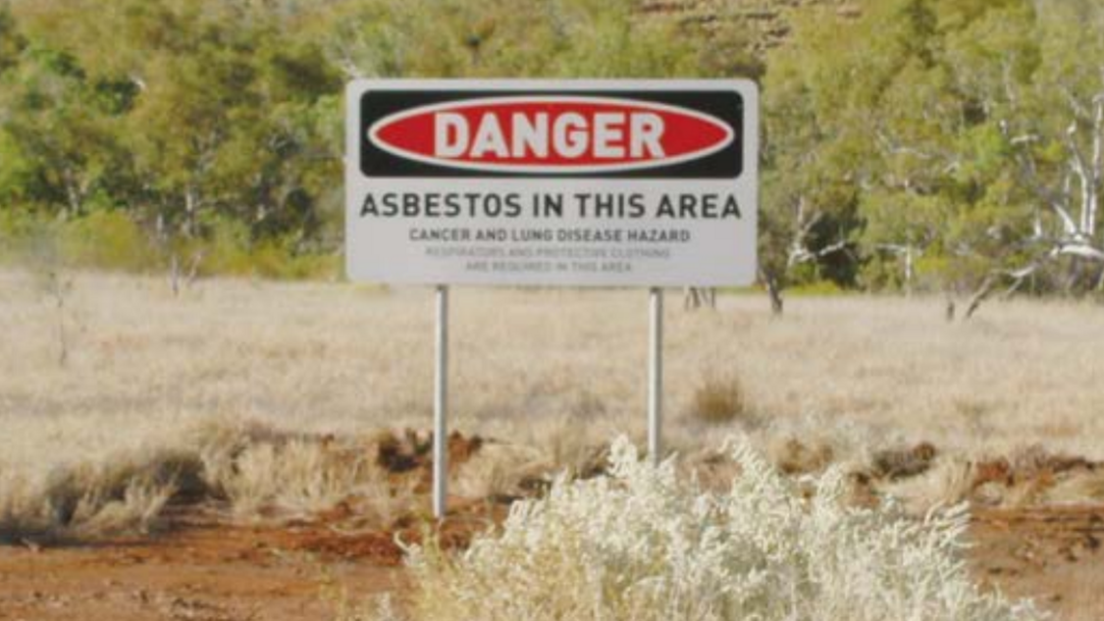
- Published5 June 2018

- Published1 February 2018

- Published14 July 2017
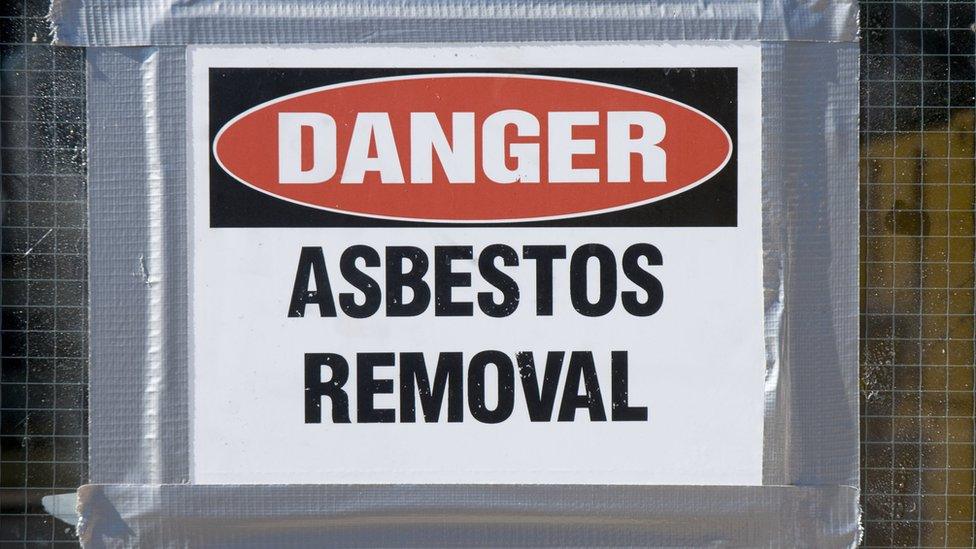
- Published2 December 2016
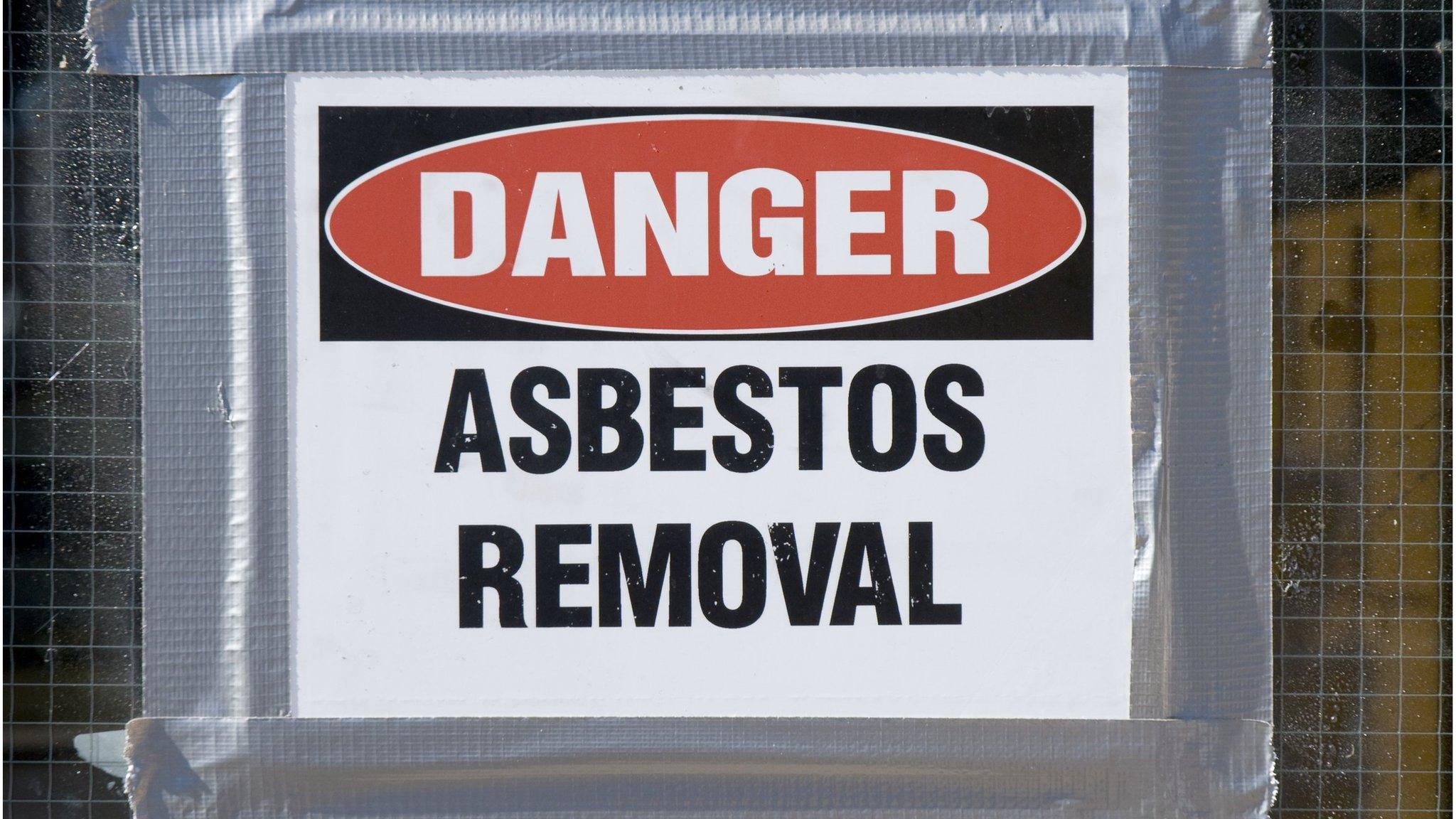
- Published9 March 2015
